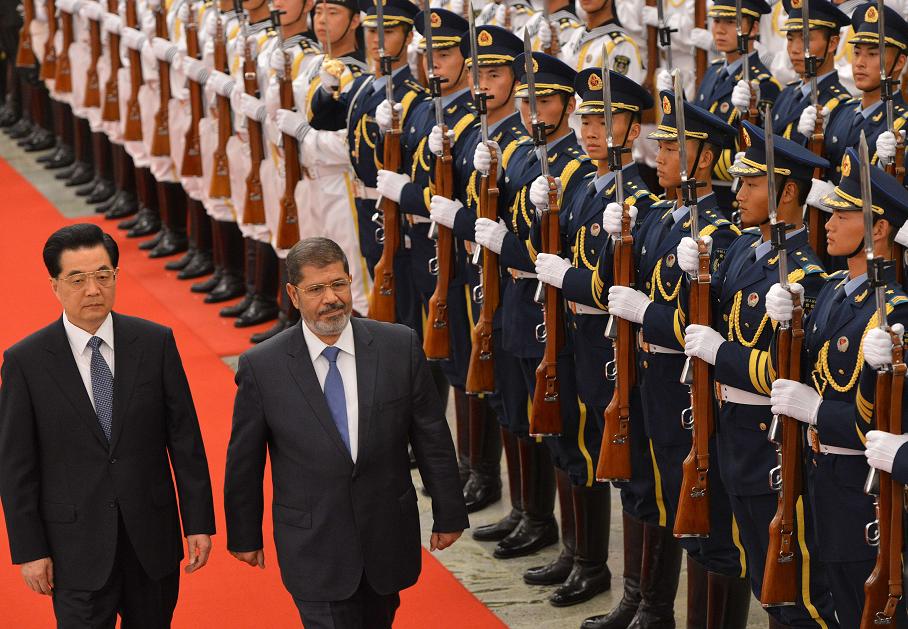CAIRO: The latest local addition to what the Chinese Xinhua news service calls China fever, will be the opening of an Egyptian-Chinese university as well as the Middle East s first Confucius Institute, in cooperation with Cairo University.
Egypt s International Education Institution is overseeing both projects.
The Confucius Institute, named after the revered ancient Chinese philosopher and educator, will focus on teaching the Chinese language and cultural elements, such as history, philosophy, and food. Lin Feng-Min, cultural attaché at the Chinese embassy, compares it to the Goethe Institution. It will also offer official proficiency testing akin to the TOEFL exam.
Professor of economics at the American University of Cairo (AUC) Adel Beshai thinks we have a lot to learn from the Chinese. He says the biggest benefit is to know the culture and religion, to know how they got where they got.
When you know the language of a culture, you can begin to think inside this culture, he adds.
The harder they work, the more relaxed they are, he said, in contrast to Egyptians, who are notorious for their low productivity. If we don t start picking up positive Chinese practices, Beshai says, we ll just keep importing like a backward country.
Kadri Zeind, the International Education Institution s public relations manager, told The Daily Star Egypt that exact plans for the Confucius Institute have not been delineated yet, but that it will open on the Fayoum Road, 10 minutes away from Remaya Club.
Feng-Min says learning Chinese is also “imperative for Egyptians studying Chinese medicine, as well as for businessmen and tradesmen. [It] will help Chinese-Egyptian relations in all aspects: trading, tourism, culture and much more.
With regards to tourism, Feng-Min says These past few years, the Chinese economy has flourished and Chinese people have become more able financially to visit Egypt as opposed to the past poverty which limited them.
According to statistics from the Tourism Federation, 35,327 Chinese nationals visited Egypt in 2005, up from 13,779 in 2000 and 12,962 in 2001. Hisham Zaazou from the Federation says Egypt aims to take a slice of the tourism cake. He says estimates state that by 2020 more than 100 million Chinese will be traveling worldwide.
The number of students studying Chinese has increased exponentially, at Cairo, Ain Shams, and Al-Azhar universities, and the Chinese Cultural Institute, the largest program being that of Ain Shams University with 1,000 students learning the Chinese language. Even universities in Alexandria, Fayoum, and Zaqzeeq want to start teaching Chinese, according to Feng-Min.
The Egyptian-Chinese University will be a welcome addition to the scene.
Feng-Min told The Daily Star Egypt that the undergraduate university will bring professors from Liaoning University who will start by teaching in English, but eventually, Chinese will be the language of instruction.
Zeind said the university, with a capacity of about 12,000 students, will offer courses in all subjects but will have special emphasis on technical and scientific fields such as medicine, pharmacology, and engineering.
He says each technical faculty will have its own factory and all supplies will be provided. In their third and fourth years, students will have the option to transfer to Lioning University where they will also receive practical experience and paid training in local companies.
The protocols for the university and the institute were signed in China late November between Liaoning University and the Egyptian International Education Institution, following President Mubarak s visit to the Beijing Summit of the Forum on China-Africa Cooperation. The first cooperation agreement was signed in 2005. Both the institute and the university are slated for completion within 2008-2009, according to Zeind.
It is not only adults that will start learning Chinese either. According to a protocol signed with the government in 2004, a Chinese school was supposed to be completed by 2006. Feng-Min says it is under construction and will likely be operational in a few years, offering all grades from kindergarten to high school. The school s language of instruction will be Chinese, but English and French classes will also be available.
Egypt is not unique in its interest. Its Confucius Institute will be the 108th in the world. Statistics from the Chinese Ministry of Education show that 30 million foreigners are studying Chinese worldwide, with over 100 countries offering the language in more than 2,500 colleges and universities.



